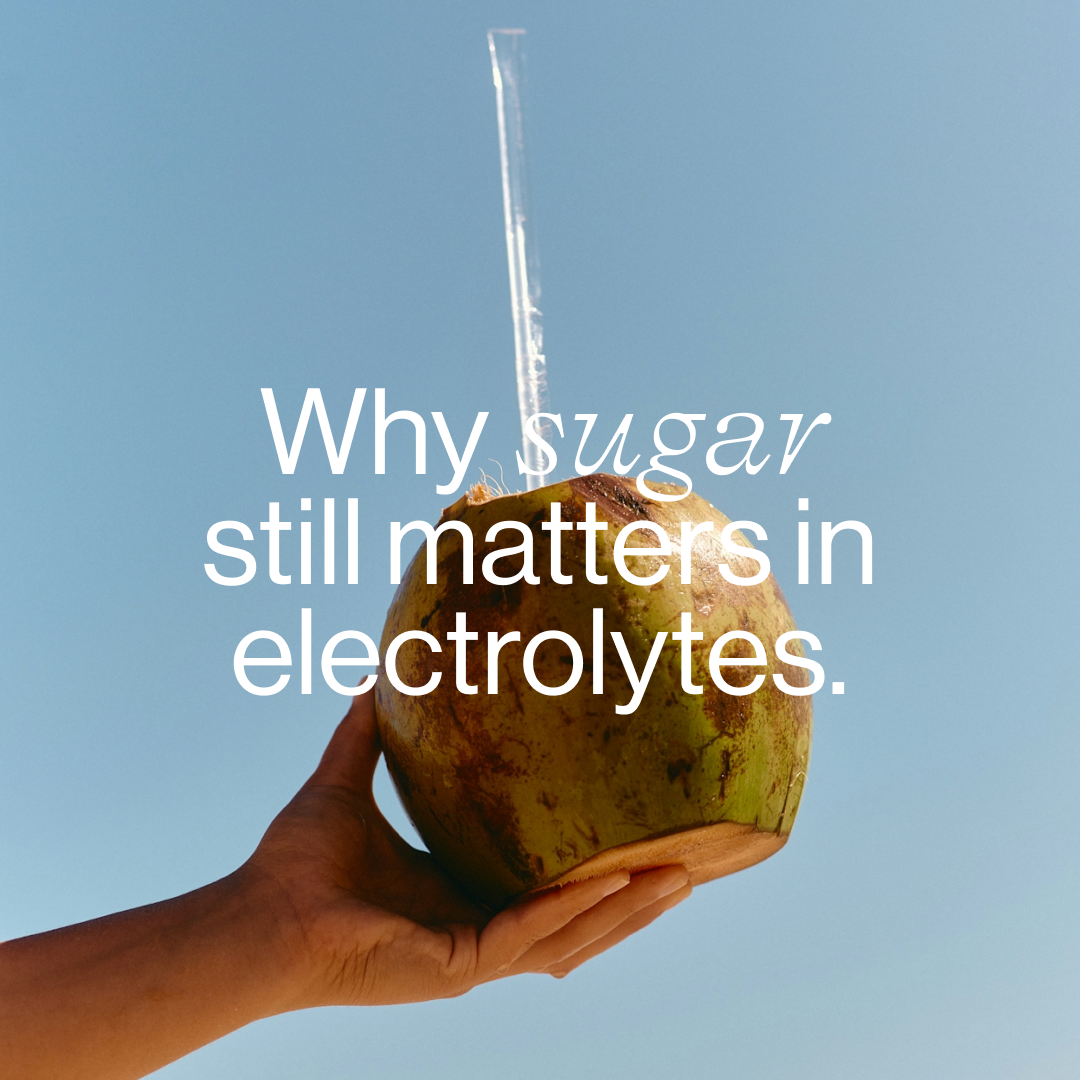Salt: Why It's Key to Hydration (and What We’ve Been Getting Wrong)
For years, salt has been demonized. We've heard it all: “Cut back on salt,” “Too much sodium is bad for you,” and “Low-sodium diets are better.” But when it comes to hydration, the story is more complicated—and salt is actually a key player.
It’s time to rethink what we’ve been told about salt and why it’s crucial for proper hydration.
The Role of Salt in Hydration
Salt, or sodium chloride, is essential for your body to function properly. Sodium, in particular, helps regulate water balance both inside and outside your cells. It acts like a gatekeeper, ensuring that your cells have the right amount of water to maintain normal function.
During exercise, or even in everyday activities, you lose salt through sweat, along with water. If you don’t replace both, you risk dehydration, no matter how much water you drink. In fact, drinking only water without replenishing sodium can actually dilute the remaining sodium in your body, leading to a condition called hyponatremia, or dangerously low sodium levels. This can result in symptoms ranging from muscle cramps to confusion, and in severe cases, it can be life-threatening.
So, salt isn't the enemy—it’s the unsung hero that helps you stay hydrated.
Why We've Been Told Salt is "Bad"
The idea that salt is harmful primarily comes from concerns about high blood pressure and heart disease. For people who already have conditions like hypertension, excess sodium can indeed be a problem. But for active individuals, athletes, and those living in hot climates, salt plays an essential role in staying hydrated and maintaining energy levels.
The problem isn’t salt itself—it’s the excessive amounts found in processed foods. Fast food, canned soups, and salty snacks all contribute to higher sodium intake. But when we talk about salt in the context of hydration and active lifestyles, it’s about replenishing what you lose through sweat—not the same as the overconsumption linked to processed foods.
Why Salt is Crucial for Active Lifestyles
When you’re active—whether it’s during exercise or just running around in your daily life—you sweat out water and electrolytes, including sodium. If you’re only replacing the water, your body can't retain it effectively without sodium to balance it out.
Here’s why salt matters:
- Maintains fluid balance: Sodium keeps water in the right places in your body, ensuring your cells stay hydrated.
- Prevents cramps and fatigue: Replenishing sodium helps prevent the muscle cramps and fatigue that often come from electrolyte imbalances during and after physical activity.
- Boosts performance: Proper hydration, supported by adequate salt intake, helps improve endurance, focus, and energy levels during exercise.
In short, salt is what allows your body to hold onto the water it needs, especially when you’re sweating. Without it, you’re not truly rehydrating, no matter how much water you drink.
What’s the Right Amount?
While it's important to replenish sodium, it’s also key to find the right balance. You don’t need to overdo it, but you do need enough to restore what’s been lost. The amount of salt you need depends on your activity level, how much you sweat, and even the climate you’re in.
If you’re working out intensely, living in a hot environment, or just sweating more than usual, you’ll need to replace those lost electrolytes, including sodium, to stay properly hydrated. That’s why many sports drinks and electrolyte blends contain sodium—they're designed to replenish what you lose.
HYDEE: Hydration with the Right Balance of Salt
At HYDEE, we understand how critical sodium is to staying hydrated. That’s why we include the right balance of sodium in our formulas, ensuring that you get what you need to stay hydrated without overloading on unnecessary salt. Whether you’re training hard or just staying hydrated through a busy day, HYDEE helps you maintain the right balance of electrolytes to perform at your best.
Conclusion
It’s time to rethink the narrative around salt. Rather than being something to avoid, sodium is actually one of the most important tools in your hydration toolkit. Proper hydration isn’t just about water—it’s about the right balance of electrolytes, especially sodium, to keep your body functioning at its best.


